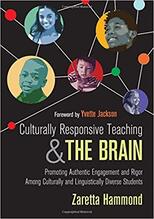|
It is no secret to those that know me that I am very passionate about equity work as it relates to education. I have helped create a hybrid bias and equity year-long course, reflected on conference sessions and presentations, and engaged in countless conversations related to the inequities that plague our educational system. You can find my previous blog posts below.
While engaging in professional conversations and attending professional development around equity is valuable, I have found the impact to be limited. I believe that the hardest and most important work we can do as educators is pursue personal growth and education as it relates to issues of equity, inclusion, anti-racism, culturally responsive education, etc. This requires us to immerse ourselves in these topics on a regular basis - examining our identities, biases, complexes, blind spots, and fragility. It is never-ending work requiring intense study. Before I share some of the work I've personally engaged in, I want to name that I come to this work as a complex mash-up. I am a mixed, racially-ambiguous-looking, queer person who uses she/her pronouns. I took the last name of my spouse and co-parent a tiny human made with the help of science. Much of my family lineage has benefitted from systems of white supremacy and other parts have been oppressed by these same systems. My growth is incomplete and imperfect. I know I will not get everything right and I will continuously mess up. I am actually quite nervous to write this post because I know I still carry many biases and still have so much work to do. I am not an expert by any means. The work is hard and vulnerable, but I also know that for me to continue growing - reflecting and sharing my journey is necessary. As someone who struggles to read books on a regular basis (for a variety of reasons), I have found short articles, videos, and podcasts to be my main mediums for personal study. Luckily, I have also been able to participate in book studies and other formal professional development related to this work. I find colleagues, family, and friends to process my learning with and engage in deep, difficult conversations. I take time to internally reflect on my learning and try to practice awareness and speak up as often as I can manage. It is exhausting. There are some weeks that I have to take a break - but I always come back and dive in again. Below are some of the resources that have impacted me the most.
White Supremacy Culture Article by Tema Okun This article breaks down common organization cultural practices that are soaked in white supremacy culture. I find myself reflecting on meetings, interactions, and school cultures as it relates to this article all the time. Mostly, I find myself deeply concerned about the way schools feed into the 'Worship of the Written Word' element of this culture. Frequently, we do not count students as having mastered a topic unless they can write at grade level about it. Discussions, presentations, videos, and other non-written representations of understanding are seen as less valid or rigorous. This article gives me the words I've needed to engage in conversations to push back on this idea. This journey has greatly impacted me both professionally and personally. Between my work in public education and the complexity of my family background, I think about issues of equity ever single day. It's definitely changed me, pushing me to be a stronger advocate and solidifying elements of my personal identity. I know I still have a long way to go and I want to take this opportunity to reflect on some of the ways this work has impacted me in terms of awareness, advocacy, and identity.
There are a ton of personal experiences that have gone into shaping where I am at in this journey - it is likely I could dedicate and entire blog or write a book and still not capture everything. I hope that by sharing a glimpse into my story and this work I can inspire other educators to find the resources and community they need to either start or continue their own equity journey. Our students need stronger and better allies to overcome generations of systemic oppression. Unless we make a greater effort, we will continue to fail our historically underserved populations and perpetuate the inequities still seen in classrooms today. We can and must do better, but it take each of us sitting in discomfort and engaging in this work. To quote Brené Brown from her most recent Netflix special, “To not have the conversations because they make you uncomfortable, is the definition of privilege. Your comfort is not at the center of this discussion.”
0 Comments
Leave a Reply. |
AuthorMattea Garcia is a human-centered problem-solver dedicated to improving learning and technology experiences. This blog is dedicated to reflections on leadership, educational technology, instructional coaching, educational equity, and more. Archives
June 2022
Categories |

 RSS Feed
RSS Feed
